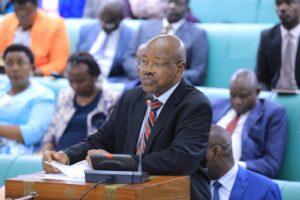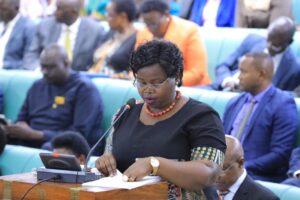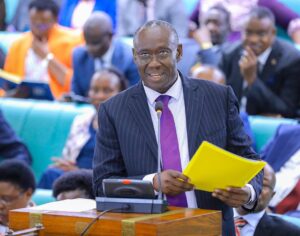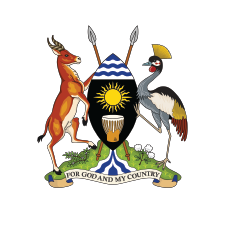Kampala: 9/01/2024

The Parliament of Uganda has approved the fourth National Development Plan (NDPIV) which is the framework to guide Uganda’s development interventions for the next five years. The National Planning Authority (NPA) produced the NDPIV in consultation with the President, the government Ministries, Departments and Agencies (MDAs), Local Governments, civil society, development partners, donors, academia, and cultural and religious institutions.
The NDPIV which will be implemented from financial years 2025/26 to 2029/30 is the fourth in a series of six NDPs aimed at accelerating the socio-economic transformation of Uganda. Over the five year implementation period, the NDPIV will seek to“Achieve higher household incomes, full monetization of the economy, and employment for sustainable socio-economic transformation” to be attained under the theme “Sustainable Industrialization for Inclusive Growth, Employment, and Wealth Creation”.
The Parliament approved the plan with amendments that the NPA is expected to consider for a more comprehensive Plan. One key observation made by Parliament through the Budget Committee is that there has been progress registered in aligning MDA and LG plans to the budget. However, compliance of budgets to the NDP over the last four years averaged 60.3 percent, alongside several underfunded priorities. Parliament also observed that at end of FY 2021/22, only 17% of the targets of the third National Development Plan (NDPIII) were attained midway the Plan’s implementation. The poor performance was partly attributed to the challenges associated with the covid-19 pandemic, global economic challenges and the slow implementation of most of the 69 core projects among other challenges.
In this regard, Parliament recommended that;

The Parliament also made recommendations in regard to revenue mobilization enhancement, fiscal deficit management, management of domestic arears, effectiveness of the industrialization strategy, regional balanced development, the Legislation, Oversight and Representation programme, promotion of games and sports, the railway master plan, animal and crop traceability, and the NDPIV projects.
Unlike the previous development plans, the NDPIV seeks to consolidate development gains, adopts a prioritization logic which emphasizes value addition in productive areas with great potential to drive socio-economic transformation. The Plan also strengthens the programme approach to ensure effective delivery of results and more focus will be on implementation, follow-up, monitoring and evaluation. The NDPIV is more fiscally realistic, seeks to increase efficiency of public service delivery and leverages the Science, Technology and Information Communication Technology (ICT) to provide new sources of growth.
The NDPIV has been developed to respond to unique circumstances and exploit available opportunities to fast-track the realization of the desired socio-economic transformation aspirations towards delivering the qualitative leap and full monetization of the economy. Alongside the consultations from the various development players, the plan is informed by government priorities, the country’s socioeconomic and political history, the Uganda Vision 2040, lessons learned from the implementation of the previous plans, stakeholder engagements, Agenda 2030, Africa Agenda 2063, EAC Vision 2050, and 10-fold growth strategy. The strategic direction articulates; the goal, theme, objectives, prioritization logic, development strategies, delivery approaches, and high-impact projects.

Despite previous NDPs laying the foundations for development in infrastructure, security, human capital, the country’s progress has been slow. The average growth rate for the last decade has been 4.8% against the Uganda Vision 2040 target of 8.5%. At this rate, the Vision targets of reaching upper middle-income status with a GDP of USD 581 billion and per capita income of USD 9,500 are unlikely to be realized. Therefore, a 10-fold increase in the size of the economy (at USD 53.2 billion in FY2023/24) is required to bring back the economy on the critical path to attaining the Uganda Vision 2040 targets in the remaining 15 years. In this regard. The NDPIV is therefore the first of the three 5-year NDPs that will deliver the 10-fold growth strategy, which is expected to be achieved by doubling the size of the economy every five years.
